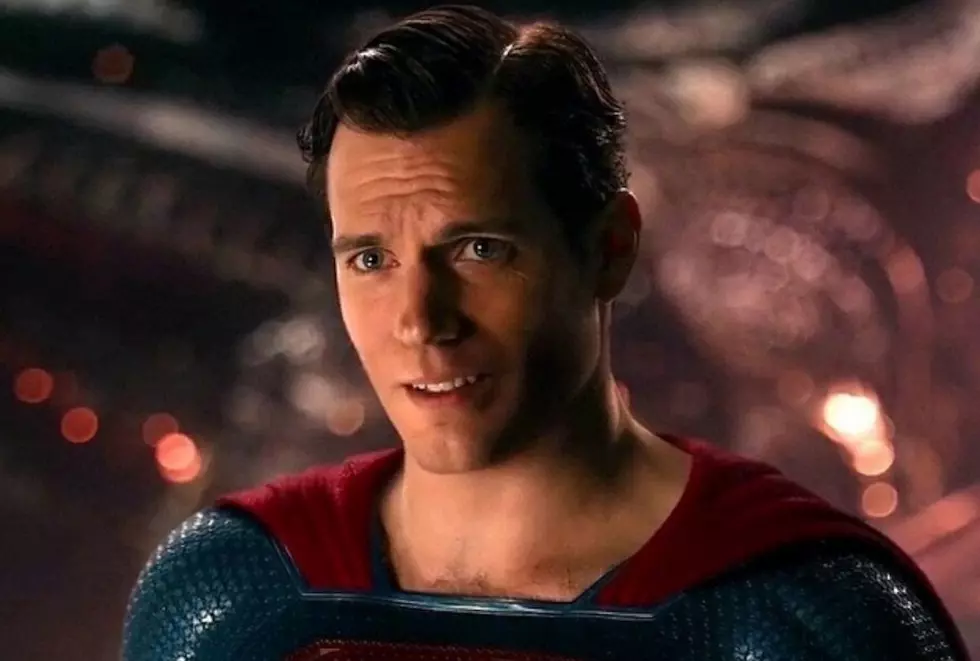![Buffy The Vampire Slayer #40: The End of Season 8 Is Here [Review]](http://townsquare.media/site/622/files/2011/01/buffy-comic-40.jpg?w=980&q=75)
Buffy The Vampire Slayer #40: The End of Season 8 Is Here [Review]

It's now January 2011, almost nineteen years since the Buffy the Vampire Slayer movie that got the franchise off to a rough start and almost fourteen since the beginning of the television series that eventually got it all right. Now Season 8 of the life-after-TV-show Buffy comic book wraps up this week, a book that has had its ups and downs, its moments of brilliance and its confused stumbles, but ultimately ends strongly with issue 40. Wrapping up the "Last Gleaming" arc, creator Joss Whedon finishes things off alongside artist Georges Jeanty with a story that straddles the line between Season 8 and the upcoming Season 9, tying up a few loose ends and introducing hints at new complications to come.
SPOILERS FOLLOW. THIS IS YOUR LAST CHANCE TO STOP READING BEFORE WITNESSING SECRETS NOT MEANT FOR HUMAN EYES (THAT HAVE NOT YET READ ALL OF SEASON EIGHT AND WOULD PREFER TO DO THAT FIRST)

My feelings on Season 8 have been mixed: It started strong, with good early arcs by Whedon and Brian K. Vaughan, but around the halfway point of the series, with the plotlines involving the growing popularity of vampires, the fight between the Slayer army and the military, Buffy's new superpowers, and the apocalyptic attack by demons from another dimension, the series' writing began to feel increasingly disconnected and the scale of events pulled the focus away from the characters.
As a television series, Buffy had always led with its characters and let the plot take a supporting role, but without the actors present to create a feeling of consistency from writer to writer, as a comic Buffy felt precariously close to slipping into the mainstream conventions of its new medium. Brad Meltzer's massive battles between Twilight's military forces and Buffy's army of slayers sometimes felt too much like a big Marvel event, with page after page of impressive fight scene after impressive fight scene. And Whedon's last arc couldn't shake that, with its reality-in-the-balance demon invasion, a scope so massive it sometimes felt more like a DC Crisis than an episode of Buffy.
When I finished issue 39 I was on the verge of deciding to stop following the series, but thought I would read issue 40, see what sense of finality it offered, and let it go. Instead I found that the final issue of Season 8 moved the series back in the direction I had been missing, by skipping ahead in time to a point after Buffy has saved the world yet again through her destruction of the seed at the end of the last issue, sending the demons back to their own dimension came at a great price.
As a result Buffy destroys all magic in the world, taking away her superpowers, all of Willow's powers, and preventing the creation of any new slayers. And so Buffy is left waiting tables in a coffee shop while all of her friends start to push her away. She sleeps on a couch in Xander and Dawn's apartment in San Francisco, which is a bit awkward with the sex Xander and Dawn are now having several feet and a thin wall away. Willow angrily blames Buffy for destroying magic, setting her up as an antagonist for next season. Faith is all the way over in England, carrying on Giles' legacy, and Angel is practically catatonic after killing Giles under the influence of Twilight. Spike can't hang out because he has to fly in a spaceship piloted by bugs, because as much as issue 40 is back to being a character piece it can't shake off all the quirks the series has picked up in comics. On top of all that, the army of Slayers has abandoned Buffy, even forsaking the term "slayer" out of anger over the price Buffy paid to save the world.

All of which means Buffy's left at the end of Season 8 mostly on her own, with no great army to command, fighting vampires with her strength and her wits and trying not to let her few remaining friends down again. That's actually an intriguing setup to Season 9, because the idea of Buffy making difficult decisions about what price is worth paying to save everything and then having to live with the consequences could make for great reading. Particularly when contrasted to the fact that she was given with the choice to sacrifice all of her friends and live in paradise with Angel, she didn't, and now even though they're (mostly) not dead, very few are grateful.
But it's worth stopping to note that if the best thing I have to say about the end of Season 8 is that it's got me looking forward to Season 9, what does that really say about Season 8 itself? Throughout this book's run the question of "Was this really necessary?" has been hovering around the back of my head. I'm going to paraphrase a recent column by Chris Sims on continuity and say that as I read Season 8, I was continually judging whether this fit into my personal view of Buffy continuity, official say-so be damned. And now that it's done, my honest response is that it doesn't feel like it fits, and that something's missing.
In issue 40 there's an exchange between Willow and Buffy where Willow tells Buffy that even though she saved the world from destruction, the world lost its heart in the process, and in the long run that might be worse. That's not too far off from how I feel about this book. There's something that didn't survive the transition from weekly episodic hour-long drama to monthly 22 page comic. Maybe it's not hearing the lines delivered by flesh and blood actors. Maybe it's the fact that this format doesn't afford the time for the kind of extended banter that told you who these characters are. Maybe it's the fact that you can't sit around a comic and read it all at once with your friends the way you can all sit and watch an episode of Buffy together, all experiencing the timing of the performances and delivery of the lines at exactly the same instant. Maybe it's little bits of all those things at once.

Buffy finished its seventh television season with an ending that had a strong sense of finality, and there's something to be said for a conclusion that doesn't give us the full, unabridged, Tolkien-esque appendix detail on what happens to all the characters for the rest of their lives. In a perfect world I'd be able to enjoy reading Season 8, appreciate for its differences and then mentally put it in a place not directly connected to the seven seasons of television. But I have read it, I can't fully separate it, and yet I can be glad for parts of it, particularly issue 40. And I can look forward to Season 9, and give Whedon and the book's other creators another chance to make these characters as familiar to me again as they felt in this issue.
What were your thoughts as you read Buffy's first full season as a comic, and do you plan to follow it into the next season as well?
More From ComicsAlliance






![John Ridley And Georges Jeanty Reunite For ‘The American Way: Those Above And Those Below’ From Vertigo [NYCC 2016]](http://townsquare.media/site/622/files/2016/10/TAMWAFeat.jpg?w=980&q=75)


